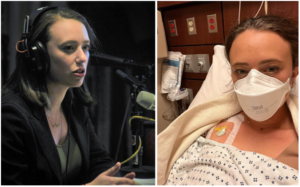
What Happens After Port Surgery?
In the second part of our port series, I am breaking down a little bit of what happens after port surgery. A critical part of

In the second part of our port series, I am breaking down a little bit of what happens after port surgery. A critical part of

When I tell people I’m sick, they usually think I mean something short-term and contagious like the flu or a stomach bug. If I say

As 2022 races out of the gate, I am feeling hopeful. For many reasons – some of which purposefully self-fabricated as I described on New Year’s

As we explored building up a care team last month, I wanted to take this opportunity to dive into a few of the treatment plans, therapies, and

Learning to thrive with a chronic illness is a team effort; it’s not something you can simply do on your own. You’ll need to work on